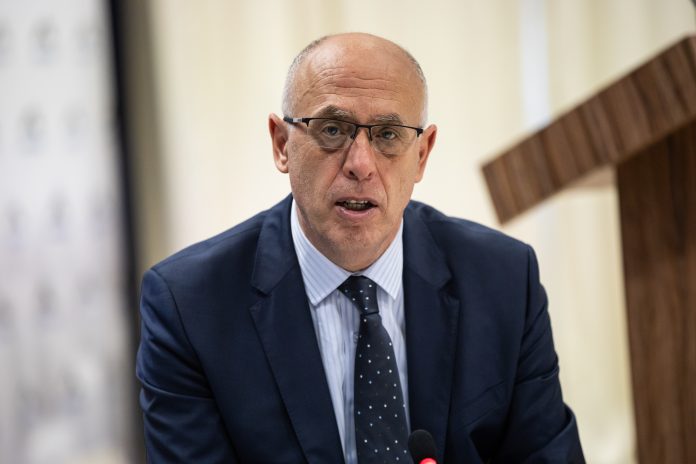The recently concluded European elections, whose results will determine the leaders of EU institutions for the next five-year term, have ensured the European Parliament’s continued support for the European Union enlargement process, including Montenegro, which is leading in this process.
A positive outcome from these elections is that the far-right did not gain as much traction in the European Parliament as some had predicted, and pro-European groups secured dominance for the next five years. At least 500 of the 720 newly elected or re-elected MEPs belong to pro-European groups. With minor changes, the three largest political groups maintained their positions, though the Liberal party Renew experienced a significant drop. The European People’s Party (EPP) strengthened its leading position with a notable increase, while the Social Democrats saw only a slight decrease.
The EPP increased its seats from 176 to 186, a gain of ten seats. The Social Democrats retained second place despite a slight drop from 139 to 135 seats, managing to offset losses in Germany with gains in other countries. The Liberals from the Renew party, founded by French President Emmanuel Macron, saw the most significant decline, losing over 20 seats, dropping from 102 to 80. However, they managed to barely maintain their third position, which they could lose if new parties join the Conservative and Reformist group (ECR). The Greens experienced a significant drop from 71 to 53 seats.
The predicted massive rise of the far-right did not materialize. The far-right parties, grouped under Identity and Democracy (ID) led by France’s Marine Le Pen, gained only nine additional seats, increasing from 49 to 58. There remain about 100 MEPs unaffiliated with any political groups, who could join this group or form a new radical coalition. The Alternative for Germany (AfD) was expelled from ID, so even with potential new members, there won’t be a significant far-right surge in the European Parliament. The European Conservatives remained relatively stable, increasing by one or two seats to 73.
Even if the ECR is considered far-right, together with ID, they do not exceed 150 seats out of 720 in Parliament. However, ECR is not far-right; they oppose deeper EU integration and transferring more national powers to EU institutions in Brussels. Yet, ECR is very positive about EU enlargement.
Regarding the new composition of the European Parliament, Montenegro can be reassured of strong support. Not only will the European Parliament back Montenegro and other Western Balkan countries, but it will also push for a significant acceleration of accession negotiations and pressure EU member states not to block or complicate the process with various conditions.
Montenegro must also be aware that the majority in this European Parliament will be critical of Russia, demanding strict adherence to sanctions against Russia and preventing any Russian interference in countries aspiring to join the EU. Montenegro will be expected to demonstrate unwavering commitment to EU integration and maintain its pro-Western orientation as a NATO member and EU candidate.
Failure to fully align its foreign policy with the EU’s positions could jeopardize Montenegro’s leading position in EU accession negotiations. Therefore, EU representatives repeatedly emphasize their approval of Montenegro’s 100% alignment with EU positions as proof of the country’s geostrategic orientation.
European Elections Night 2024
Besides the European elections, Montenegro received a positive report on meeting the interim benchmarks from chapters 23 and 24 in the accession negotiations (IBAR). Chapter 23, concerning the rule of law, is considered the “mother of all chapters” and influences the closure of other chapters. This IBAR could and should be a turning point in Montenegro’s accession negotiations, leading to the closure of chapters where conditions are met.
While it can be said that the European elections will not negatively impact Montenegro’s EU path or the enlargement process in general, the real threat comes from individual EU member states where the far-right has won or strengthened. An example is the Netherlands, where the far-right Freedom Party led by Geert Wilders, known for opposing EU enlargement, is expected to form a new government. Since enlargement decisions in the EU Council are made unanimously, with each member state having a veto, the rise of the far-right in member states is a more significant threat than the noise far-right MEPs can create in the European Parliament, where they are isolated on enlargement issues.
Written by: Augustin Palokaj


